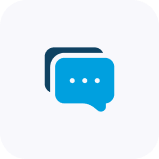Much to the shock of users around the world, Google recently announced that as of July 1, 2013, it is retiring its flagship RSS reader application, Google Reader.
Picture source: Mashable
I have been particularly hard hit by this announcement because Google Reader is one of my favourite tools. In fact I truly do love this application. Those might seem like strong emotions to be applied to a lowly RSS reader but they are mine.
Why you might ask? Well, I use GR every day as a primary tool to help track and organize that fire hose of information flow called the internet that I need to stay current with to do my job as a higher education marketer. First thing, each morning, (and with great relish), I open up Google Reader to find a list of approximately 150 -200 news articles, blog posts and announcements about higher education, educational technology and educational marketing. I read some, tweet some, and flag some for further investigation and in 20 -30 minutes, I feel plugged in, motivated and at least temporarily, on top of a rapidly changing edtech marketing world.
As a result of this personal experience, I’ve recommended Google Reader to many of my higher education marketing friends and colleagues as an essential tool to help them manage their online information needs and to feed their institution’s content development efforts. The argument goes something like this.
The benefits of a robust Google Reader RSS feed to a user are:
1) In a very simple and efficient manner, you can keep up with what’s happening in your field from a technology, societal and marketing point of view. My RSS feed is my professional development assistant that provides me with current information, trends and analysis that I need to know about to do my work as a higher ed marketing professional.
2) It provides an incredibly rich and renewable aggregation of higher education related content that you can redistribute to your professional, prospective student or institutional audience. I regularly tweet and post to Facebook and LinkedIn articles or blog posts that have come to me through my feed that I know my higher ed marketing colleagues will be very interested in. As you know “Content is King” and your RSS feed can be one of your best renewable sources of new, interesting, and trending information.
3) I use my RSS feed as a source of inspiration for ideas for original content that I need to produce for blogs, articles, white papers etc. Faced with a blank piece of paper and a deadline, a quick review of new posts in Google Reader has often given me an idea or angle on an topic that has led to very productive writing of my own.
Since the announcement of Google Reader’s impending retirement, I’ve been procrastinating on the task of replacing it. I have enjoyed and benefited from the use of Google Reader over the years and I am reluctant to make a final break from it. Needless to say, a new RSS feed is in my near future but I think I will hold out until the end and spend these last few months appreciating the simplicity and effectiveness of my old friend.
Have you determined what RSS reader you will adopt to replace Google Reader? Is there anything out there that you know about that is particularly effective for higher ed?
Any recommendations would be greatly appreciated and we’ll certainly share them with all.
















